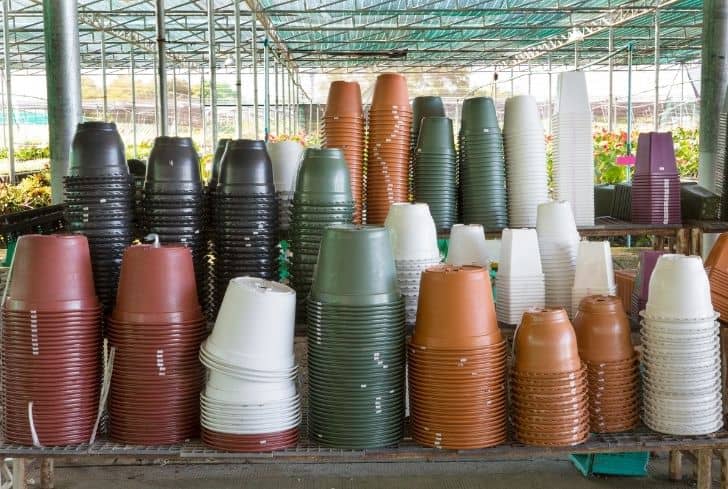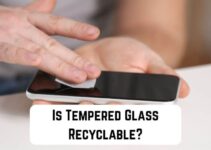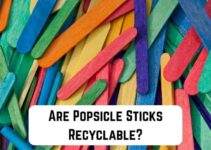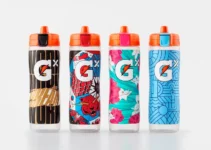In an attempt to make homes and workplaces beautiful, many people plant flowers around them. But, where do they plant these flowers? You guessed right, in plastic plant pots. You can hardly find an environment with fertile ground to plant flowers, and there are concrete grounds everywhere.
Most of us live in apartment blocks, many high-rise buildings surround us, and there is hardly any space to grow flowers in their natural habitat. This is why we resort to using plastic plant pots. They are lightweight, strong, and durable. They do not break as easily as clay pots, and moving them is very easy.
Plastic plant pots are also available in various colors, shapes, and sizes, so you have the opportunity to purchase the most suitable pot for yourself. Plastic plant pots also make planting easier. All the normal processes involved in planting are not necessary when you use a plastic plant pot.
Questions like how does the use of plastic plant pots affect the state of our environment? How can we dispose of old and broken plastic plant pots? Are plastic plant pots safe to plant? Asking these questions is proof that you show concern about your environment. We have taken the time to prepare this blog post to answer these questions. So, relax and enjoy reading!
Can You Recycle Plastic Plant Pots?
As an avid lover of flowers and nature, you will have a couple of plant pots lying around, whether plastic pots or pots produced from metal, terracotta, or fiberglass. And if you are a newbie just starting, you will see how easily they can pile up.
One of the ironies of life is that useful things often come with harmful things attached. For example, flowers beautify our environment, but the pots we plant them in may not always be good for the environment. Plastic plant pots are manufactured from different products. These products are the main determinant if you can recycle the plant pots or not.
Yes, you can recycle plastic plant pots. Plastic plant pots are petroleum-based. They are not biodegradable, except they have been recycled or upcycled. Plastic plant pots that cannot be recycled usually end up in landfills.
There are different types of plastic plant pots. The high-density polyethylene (HDPE) pots, the low-density polyethylene (LDPE) pots, the high impact polystyrene (HIPS) pots, and the polypropylene (PP) pot. Of all the four types of plastic plant pots mentioned, only one is not recyclable. That is the polypropylene pots. The remaining three can be recycled.
Can you Paint Plastic Plant Pots?
Are you tired of purchasing new plastic plant pots because the color of the ones you have has faded off and looks old and unattractive? Rather than spending a fortune every time, have you considered if you can repaint them instead? Let us find out if you can paint plastic plant pots.
Plastic plant pots can be painted and sprayed. A good way of using leftover paints in spray or can is by spraying your plastic plant pots, and this is an activity you can complete within a few hours.
Selecting the best color to use to paint your plastic plant pot is a critical decision to make. A combination of beautiful colors will transform your garden in an instant, but a bad mixture of colors can make your garden an eyesore. Spray paints can also add texture to your plastic plant pots.
There are varieties of paints and sprays you can play around with. But, you must know one fact, you want to paint plastics, and there are paints you will use that can easily be washed off when it rains, especially if the pot is outside.
To paint your plastic plant pots, you need masking tape, dust sheets, a damp cloth, spray paint, and the plant pots you want to paint. You will have a great time painting your old and unattractive plastic plant pots.
Are Plastic Pots Good For Plants?
Every thoughtful flower enthusiast should consider if plastic plant pots are dangerous to plants. We know of some of the harm plastic has on humans and our environment. So, the question is, do plastic plant pots harm or stunt the growth of plants? Let us examine if plastic plant pots are good for plants or not.
Yes, plastic plant pots are good for plants. They are strong, lightweight, and you can find a wide variety of colors to beautify your environment. But, they are also beneficial to plants. The plastic acts as an insulator; it protects the roots of the plant from harsh weather. It also holds the moisture and heats the root requires much longer than clay pots.
Plants that constantly need moisture, like ferns, thrive better in plastic plant pots than clay pots. This is because they do not have the wicking action of clay. So they can hold moisture for a long time. This is an advantage for those who do not water their plants regularly.
Plastic plant pots have been proven to be efficient, inexpensive, and a safe way to grow plants. The plants are exposed to only minimal chemicals, but with regular watering, they are washed away. Therefore, they do not pose a threat to the growth of the plants.
Plastic plant pots are manufactured from inert materials, they are safe for growing plants, and they dispense heat quickly because they have thin walls. It is very easy to sterilize plastic plant pots in case of fungal infections. You can easily clean them.
So, if you have been skeptical about using plastic plant pots to grow your plants because you think they are dangerous, this blog post has shown you they are very safe.
Are Plastic Pots Safe For Growing Vegetables?
As much as we are concerned with the state of our environment, we are also concerned with our health. As a result, the world is embracing organic gardening at a fast rate, and families with a garden are trying to grow foods that would be sufficient for them to minimize spending.
There is a perception that it is harmful to grow food in plastics. And we should completely avoid it. Some claim growing vegetables in plastic plant pots is against the idea of growing naturally. But, for people without land to grow their food, what will they do to survive?
Growing food in plastic is becoming rampant, but is it a safe practice? Do plastic plant pots have an adverse effect on vegetables planted in them? These questions and many more on plastic pots and foods will be answered in the following paragraphs.
Of course, plastic plant pots are safe for growing vegetables. However, there are a few things you need to know and take cognizance of when you want to grow vegetables in a plastic plant pot.
Some plastics can be very harmful, and they can release toxins and chemicals into the soil, especially when they have been exposed to sunlight for a long time and are heated.
So, before you start growing vegetables in plastic plant pots, make out time to study and know the type of plastics to use. Also, avoid scratched and worn-down plastic pots to avoid chemicals being released into the soil.
If you want to plant vegetables in a plastic plant pot, avoid pots in dark colors. You might opt for a dark-colored pot because it is vegetables you want to grow, and they are not to enhance the beauty of your environment. You need to know that colors like black increase the heat of the soil more than brighter colors. Vegetables do not require a lot of heat, otherwise they wither.
There are different types of plastic, and each plastic is manufactured from different chemicals, has different properties, decomposes differently, and leaches different toxins and chemicals. Until you can identify the type of plastic that is safe for growing vegetables, you would only be wasting your time.
Chemists say the chemicals in plastic are organic, so microbes in the soil can decompose them. However, it is dependent on the type of soil, the microbes, the temperature, and the chemicals.
The roots of vegetables do not absorb the chemicals released into it, so it does not get into the food we eat. So, growing vegetables from plastic plant pots is safe.
How to Dispose of Old Plastic Plant Pots?
If you are an anthophile, you will see how easy it is to pile up plant pots. You can have a big pile of them and may not know how to properly dispose of them in a way that poses no threat to the environment.
As an environmentally conscious person, you are concerned with how you can dispose of your old plastic plant pots safely. Of course, recycling is a great idea, but there are several fun ideas to upcycle old plastic plant pots. So please sit back and enjoy them.
1. Fertilizer Disperser
If you have small plastic plant pots, this is a great upcycling idea. Instead of looking for how to get rid of them, you can turn them into shakers. You can make small holes at the bottom of the pots.
Put the fertilizer or animal repellent and wave it about where you want to disperse it. Be sure you scoop it right next to the bed you want to fertilize because it will start flowing out immediately.
2. Mulch Protection
Nobody wants to be tasked with mulching, although it is always worth the effort. Dumping the mulch on the plant bed instead of spreading it around the bed often speeds it up. But, in doing this, you do not want to cover up your plants.
You can use one of your old plastic plant pots to protect them. Cover each plant with the pot before dumping the mulch and remove them after you are done.
3. Frost Protector
You can use old plastic plant pots to protect your plants from frost. Instead of worrying about the state of your plants in a frost, cover them up for the night with old plant pots and remove the pots the next day. Your plants will still be in good condition. The plastic plant pots act as an insulator to the plants.
4. Permanent Planter
By creating a permanent planting hole, you make it very easy to swap out container plants. Dig a hole in the soil and insert a plastic plant pot, preferably black, into the hole.
The pot should be larger than the container you will be swapping out. The pot should be black because the color black helps the pot blend in completely. Every time you need to swap out the plants, it would be very easy.
Conclusion
The more man becomes inventive and evolves, the more our impact on the environment. Recycling is one of the most effective ways of showing concern and protecting our environment.
If you come across this blog post, it implies you need creative and safe ways of disposing of your old plastic plant pots. We have a couple of tips for you. We assure you that you will have fun trying them out.






